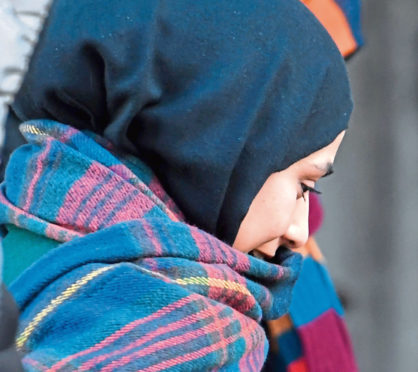An Aberdeen babysitter who was jailed for violently shaking a baby and leaving the child with a brain injury has failed in a bid to have her conviction quashed.
Syeda Begum, 29, was given a three-year prison sentence in April 2019 after being convicted of assaulting the child.
The childminder was convicted of endangering the life of the infant – who was less than a year old at the time of the attack – to the danger of her life in Aberdeen on January 1 2017.
During her trial, jurors heard how doctors involved in the little girl’s care said that when she arrived at hospital she was “critically ill”.
The child – who cannot be named for legal reason – was found to be unconcious, cold and had poor respiration.
Medics also discovered she had sustained haemorrhages to the brain and eyes.
Passing sentence at the High Court in Edinburgh, judge Lord Uist he considered not jailing Begum.
Defence advocate Frances Connor told him that the incident happened because her client had a “momentary, catastrophic loss of control”. She said Begum was a “loving and caring” mother.
However, Lord Uist said he considered not jailing her but concluded that he had no other option.
He added: “What you did almost cost the child its life.”
Lawyers acting for Begum believed she had suffered a miscarriage of justice and addressed the Court of Criminal Appeal in Edinburgh earlier this year.
Defence lawyer Brian McConnachie QC told judges Lord Carloway, Lord Menzies and Lord Turnbull that expert reports about the girls’s injuries which were given to jurors contained “hearsay” evidence.
Mr McConnachie argued that the information in the reports shouldn’t have been given to the jury to consider as it contained information which didn’t meet legal standards.
However, Mr McConnachie’s arguments were rejected by appeal judges.
In a judgement issued at the court today, Lord Carloway wrote that the information in the reports could be considered by jurors and met legal requirements.
He wrote: “In any event, no miscarriage of justice could have risen in respect of the statements in the reports.
“These were, for the most part, used in the course of the examination and cross examination of the witnesses notably the baby’s parents.
“The discrepancies, such as they were, between what the experts understood the position to be at the stage of preparing their reports and the evidence in court was fully explored by the appellant’s counsel in the court of her speech to the jury.
“The trial judge gave the jury appropriate directions on hearsay statements and how they could be used.
“The appeal is refused.”
